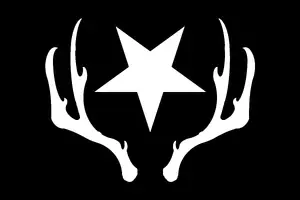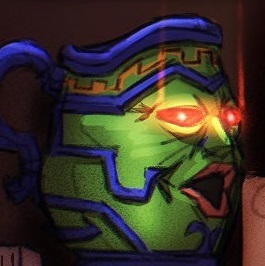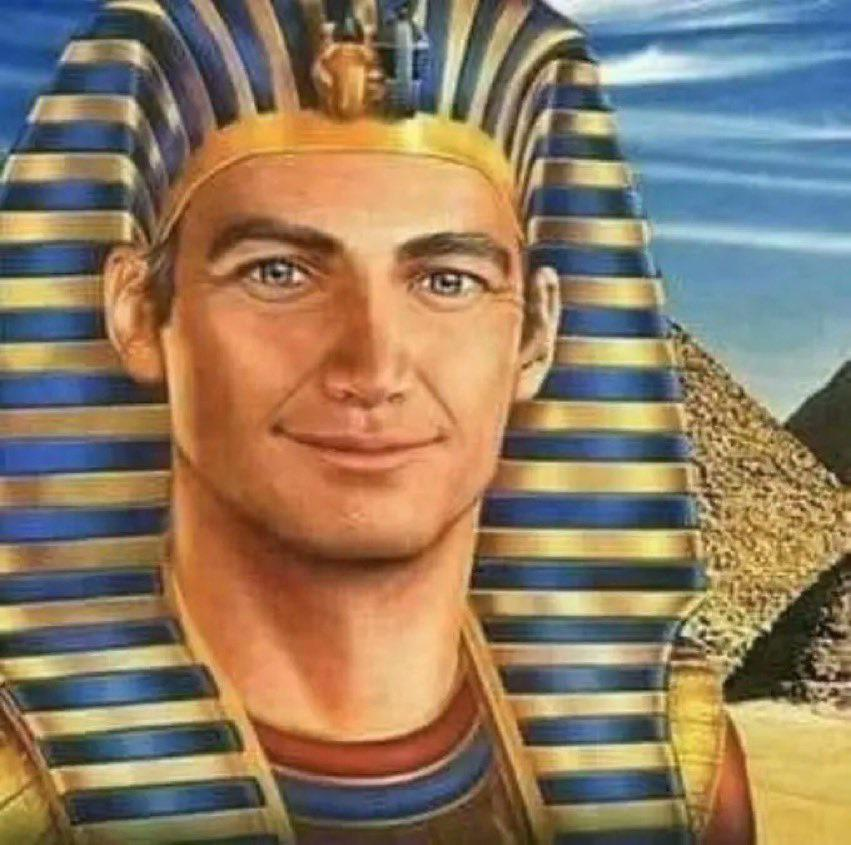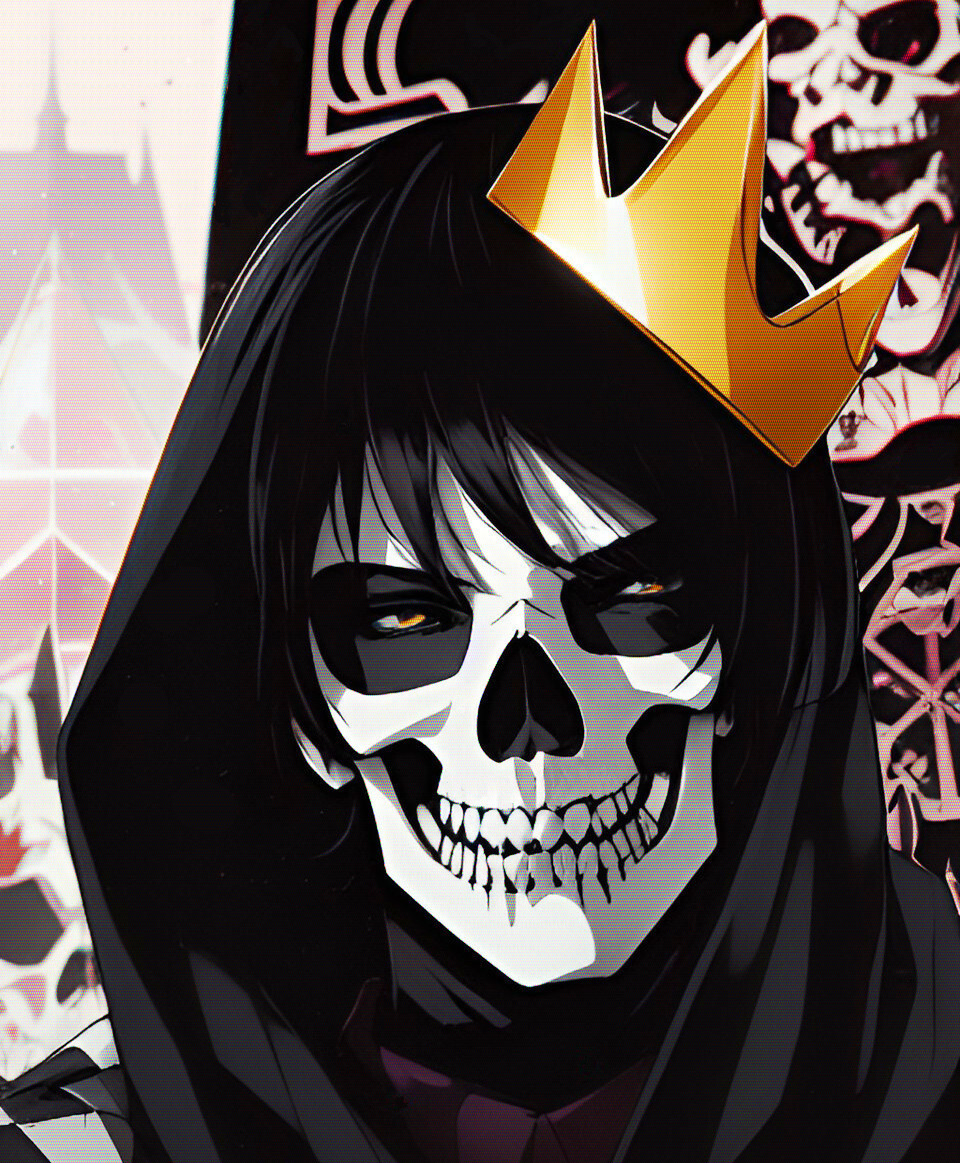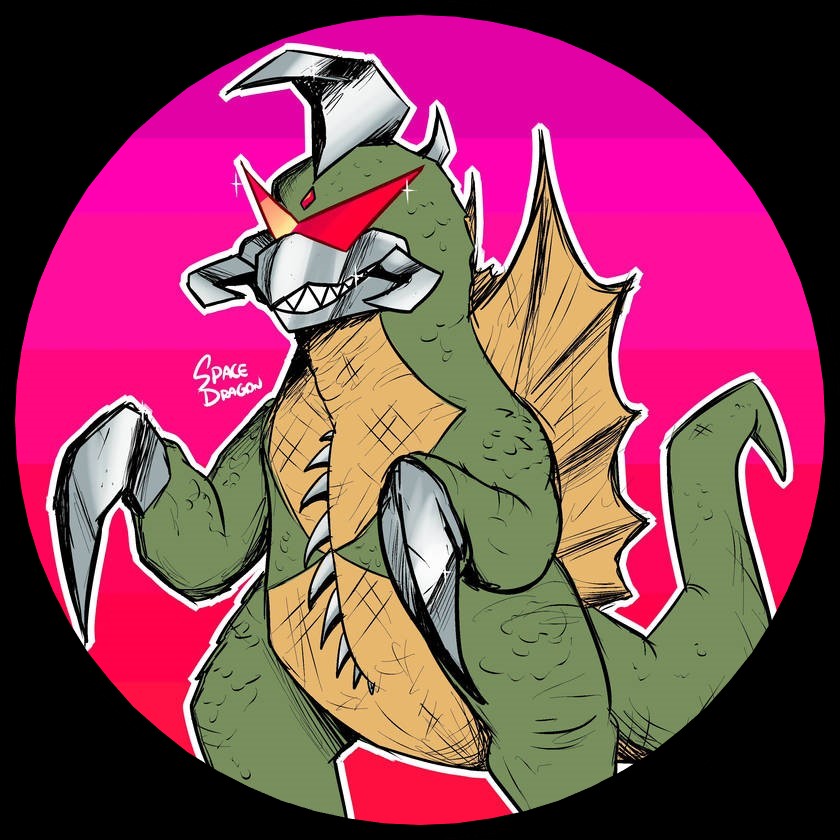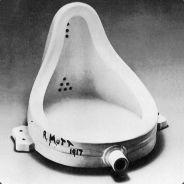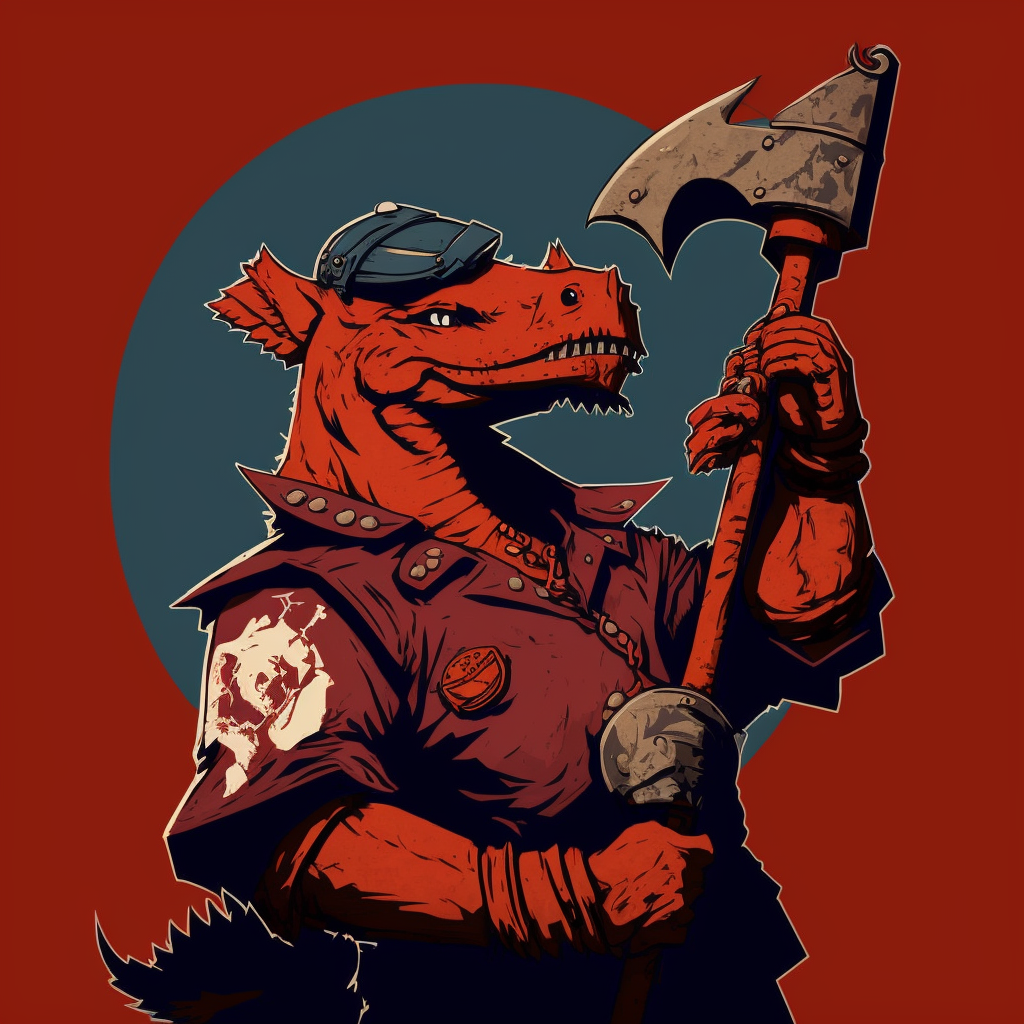Alright here it is. I honestly have no idea what I'm doing with this since I have barely read anything since middle school (maybe a book or two a year). My contributions will primarily be manga. If I need to add a genre or period let me know. This series will eventually be canonized into the sidebar as a definitive recommendation list of all things C/Lit.
Future threads:
Periods: Pre-1800, 1800s, 1900-50, 1951-99, 2000-20, 2021
Genres: Children's, Comedy, Coming of age, Folklore, Historical, LGBT, BIPOC Related, Philosophy, Pop Culture, Religious, Thriller, Western, Young Adult, Action, Adventure, Survival, Crime, Mystery, Fantasy, Romance, Horror, Graphic Novel, Biography, Travel, Historical, Propaganda, Philosophy, Political Theory, Poetry, Plays, Manga, Speculative Fiction, Sports, and Miscellaneous
Call me basic, but I second Dune. Successfully writing tension with third person omniscient perspectives is an incredible feat in my mind. That way when the reveals come together, you can see how every part plays into it. Children of Dune's big reveal was especially great for me, a moment where the reveal is both out of the blue and perfectly makes sense.
Do you recommend God Emperor too or just the first three Dune books?
I'd heavily recommend God Emperor and the following ones, personally - in fact I consider the later books better than the first ones.
Ursula Le Guin's works. Specifically The Dispossed and The Left Hand of Darkness.
I'll try to add The Dispossessed as a suggestion for the next round of the !anarchism@hexbear.net reading group. I've seen it mentioned a couple of times on here and in other Socialist circles.
Also, The Lathe of Heaven. Loved that book, amazing concept.
Frankenstein is a masterpiece. I read it in high school and it instantly became one of my favorite books ever. Hollywood's interpretations of the OG book don't do the story any justice: it's a thoroughly tragic character study with a layered narrative that still holds up today, despite being written in 1818.
Another favorite of mine is The Martian Chronicles by Ray Bradbury. Presented as a short story collection but every story takes place within the same overarching narrative about the colonization of Mars. Some of Bradbury's best work with some really powerful chapters.
Can't believe no one has mentioned The Culture Series yet. It's like Star Trek but better.
Also the Altered Carbon Series is a great cyberpunk series
Absolutely seconding this. Use of Weapons is one of my favorite books full stop, probably.
No, the books can technically be read in any order, because they are more or less independent. IMO, Phlebas is one of the weakest books in all the series and unlike the other books in the series (except inversions), it is written as a sort of anti space opera. Still a good book though.
Although, the Idiran war, which is ongoing during the events in Phlebas, is very important moment in the Culture's history and essential to understand what drives the Culture. But you could just read the appendix which gives a general overview of the war and the reasons for the war.
The second book (A player of Games) is also a very good starting point, and one of my favourites.
The Years of Rice and Salt is an old fave of mine, set in an alt history in which the Black Death wipes out 90% of Europe and following two people being reincarnated throughout time.
The Sparrow, about the Vatican's doomed expedition to make first contact with an alien civilization
Alright, let's see how many of these threads I can recommend The Hitchhiker's Guide to the Galaxy in.
Nice to meet you, I'm here seeing how many threads I can reccomend Snow crash in.
Call me basic, but I still love 1984. Still the definitive dystopia for me, especially since I wasn't forced to read in highschool as some sort of Anti-Communist curriculum.
The Akira manga is also probably the best manga that will ever be penned. The movie pales in comparison to the sheer scope of this behemoth.
I still love 1984
I second this. It's not nearly as profound as it seemed back when I was a teenager, but it's still a good story that's undoubtedly influenced lots of later works.
edit:
CW:SA
Orwell was a rapist snitch though
Here's the best article about his former lover's memoir. She didn't explicitly state it in the book, but posthumously gave her cousin access to her correspondences, and they found proof of it in her collection of letters to Orwell and others.
I always thought Foundation was great, and actually really materialist
The sequels started getting a bit weird, but the first couple are really good
The 2001 Space Odyssey series is pretty good (and the only sci-fi I've read that I can remember off the top of my head).
To be annoying, it's not based off the book. Kubrick and Clarke worked together on the project and wrote the film and book at the same time. It was all based on a short store by Clarke called The Sentinel. Clarke ended up annoyed by Kubrick and hated the movie
Yeah. It's actually the first book in a 4 books series (2001, 2010, 2061 and 3001), but they only made 2001 and 2010 into movies lol.
You definitely should. The 2001 movie is pretty accurate to the book though obviously not as dense. The ending to the movie 2001 is probably one of the most memorable moments in cinema history, but that same part in the book is on a whole other level, especially in terms of worldbuilding. It's also way less confusing as to what's happening which is nice, while still having a lot of that same surreal cosmic horror-ish feel to it.
The 2010 movie is also fairly accurate to the book, but the Chinese expedition is only briefly mentioned in the movie iirc, while it takes a much more important role in the book. 2061 and 3001 are both pretty good, 3001 especially since it's set 1000 years after the 1st book. It's a shame that neither of them got made into movies, 'cause Arthur C. Clarke created one of the coolest and most mystical visions for the future that I've ever had the pleasure of reading about.
Edit: Slightly related, but there's a found footage sci-fi film called "Europa Report" that's free to watch on YouTube, and it's basically if the Chinese mission subplot from 2010 was made into its own movie. An interesting film, though obviously watching it before reading the book would somewhat spoil the general idea of what happen in that subplot.
How about The Expanse series? It's really good hard sci-fi, and I like the politics.
I generally like it more, in the sense that some of the characters are more fleshed-out, and the dealings between the major factions are more detailed, too. For example, Anderson Dawes has a much more prominent role as a Belter leader in the novels than in the TV series.
Yeah my biggest complaint with the show is that we really don't have a belter leader to root for anymore. I also really loved the actor for Dawes (and the character), shame that they're not on the series anymore.
Same! Jared Harris was (as always) absolutely fantastic in the role, it's a shame he left the series.
The Three-Body Problem trilogy is a pretty mind-opening experience if you can get through the sloggy bits in the middle book. A vast, endless night of doom-pilling with a few faint stars of hopium here and there. Liu Cixin has a knack for making the vast, alienating spatio-temporal scale of the universe come to life in narrative.
I have never seen a book- or any piece of media- continually top itself to the degree the third book did. Every time you're like "oh, I see what's going on, now I know what the rest of the book will be", it turns out that that either what you were expecting or an event to subvert those expectations will happen in the next 10 pages, and the scope of the book will increase to the degree that what you previously expected just suddenly seems to not matter at all
I tried and failed to read this. But after this glowing review I'm gonna give it another go! Thanks for the rec :heart-sickle:
The first book is essentially a mystery. It grabbed me, but if that central conceit doesn't grab you, I can understand how it could be really hard to get through. But that moment where the mystery comes together is so good, and it sets up such a good premise for the rest of the series. The problem is, you can't then discuss that premise to try to sell the series without completely spoiling the first book.
EDIT: There is some weird misogyny spread throughout the books, though. One of the deuteragonists of the first book is a woman who is (IIRC) very well written, but after that there's some weird ideas about women and the nature of femininity sprinkled throughout.
Slaughterhouse 5/Siren's of Titan assuming they are Sci Fi are pretty good. A Brave New World is pretty decent again, borderline Sci Fi I guess.
Brave New World is OK for the world building, but christ is it not a boring book.
I guess it is pretty subjective. I found it to be a bit of a page turner. 1984 is sort of a similar book that bored me into a coma.
I'm currently reading The Ministry for the Future, after listening to the episode of Rev Left that discussed it, and it's a pretty cool read. Pretty solid hard sci-fi vibe, and it's a great counterpoint to doomerism.
I love the way it reads like an instruction manual wrapped up in a narrative. It's almost like a Socratic dialogue but with Dialectical Materialism instead of the Socratic method.
Yeah, absolutely. And it's also very readable, despite Kim going into some pretty technical detail sometimes. Some of the economic and scientific concepts that he uses kind of fly over my head sometimes, but it's generally accessible and very satisfying to read. I suppose that's true for any work of hard sci-fi, though.
Arthur C. Clarke is considered a genre staple for good reason. His work is the prime example of the scale of imagination that the best science fiction is capable of, and it has a strongly utopian socialist :possadist-ufo: bent that was inherited by all the hard SF that came after. His collected short stories are available in one volume that I highly recommend.


